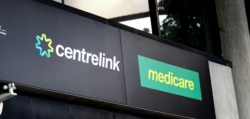
Our adviser, Megan Marshall had a big win last week. This happened when she helped Fiona to increase her Age Pension entitlement from $506 to $916. That’s an extra $410 a fortnight. It’s such a large increase that we wanted to share how this could happen. And some key tips Megan has to offer for others who feel they may be being under paid.
(As the detail of the following situation is quite specific, the name of our client has been changed for privacy reasons.)
Making ends meet
Fiona contacted Retirement Essentials as she was very concerned about her cost of living increasing and her assets dwindling rapidly. She was also nervous about making contact with Centrelink about changes to her circumstances in case her pension went down. She couldn’t bear the thought of that happening at the moment! This is a common scenario with many of the members we help. They worry that they may inadvertently make things worse if they contact Centrelink to check their benefits. As Megan pointed out, we are all human and yes, Centrelink staff can get things wrong. Checking entitlements is really important and that’s how she was able to support Fiona – by checking the detail and finding the discrepancies before Fiona got in touch with Centrelink, so she would be armed with the facts of her situation .
Why was Fiona struggling?
When Megan checked Fiona’s eligibility for the Age Pension and likely benefits, she identified that Fiona was being underpaid by $410 per fortnight. Megan estimated that Fiona should receive $916 from what Fiona had shared. Yet her actual fortnightly payment was only $506. Next step was to check Fiona’s current situation against what was listed on her myGov/Centrelink account under income and assets. There were four separate problems:
- Work income
- Super fund duplication
- Incorrect annuity categorisation
- Overvaluation of personal assets
Let’s consider each point separately
Work income
Whilst the information offered about work income was correct, it was actually backpay, not ongoing employment income so when this was reviewed, it was clear Fiona would no longer be receiving this income.
Super fund duplication
Fiona had transferred funds from her accumulation account to an Account-Based Pension. But both super accounts were listed as assets. There was only one account remaining, so this duplication (which was 2x $150,000) meant a double sum was being deemed by Centrelink, as well as swelling Fiona’s total assets.
Incorrect annuity categorisation
In general, annuities are assessed for the assets test at a discounted rate of 60%. Unfortunately, Fiona’s annuity was being assessed at 100% due to a Centrelink coding error. We all make mistakes, but this was costly in terms of Fiona’s estimated fortnightly income.
Overvaluation of personal assets
The actual value of Fiona’s assets would be viewed by Centrelink much lower than what was listed. It’s worth remembering that household contents are what you would be likely to receive in a garage sale – no more. When Fiona made a more realistic assessment of her possessions, she was able to adjust the stated amount in the declaration of her assets.
Confidence to challenge
After identifying the areas where the information Centrelink had on file seemed incorrect, Megan explained the reasons why to Fiona. She also helped her to frame her questions for Centrelink in order to cut to the chase when she contacted them. As mentioned, Fiona was nervous about challenging Centrelink, but Megan was able to demonstrate that she had strong grounds for a review of her benefits.
Is there a moral to the story?
Yes, of course there is. It really does pay to check. The fortnightly income increase more than covered the cost of Fiona’s consultation with Megan. Better still, because the coding error had been made by Centrelink, they acknowledged this error and awarded back pay on the extra income she had forgone.
The team at Retirement Essentials views this situation as a win-win. Megan was delighted to have helped Fiona understand her entitlements and be awarded extra income.
Fiona was even happier that the nagging worry that she was running down her savings was wrong, she now has sufficient income to manage her expenses more than adequately.
And the back pay? She has rewarded herself with a week’s visit interstate to spend more time with her grandchildren.
Don’t just sit there – check it out!!!
There is never any need to let concerns about your entitlements get you down. A quick consultation with one of Retirement Essentials experienced advisers will help you confirm what you should be receiving. If this varies from your current payments, then we will identify specific questions and actions for you to undertake when dealing with Centrelink. You can also consider one of our Maximising Entitlements consultations that can also help you identify changes you might be able to make to improve your situation.
Call for comment
Having four different items incorrectly recorded is unusual, but not impossible. Even one error in your assets and income submissions can make a big difference. Has this happened to you?






Does long service leave rate as an assessable income?
Hi John, thanks for asking a great question! If you are still employed and using your long service leave then yes Centrelink will assess it as income/salary. If however you retire and receive your leave as a lump sum payment then no, Centrelink simply assess it as an asset like any other money in the bank you have.
Hi Megan, on a similar note my husband is thinking of changing jobs which means he will be paid out his two years of annual leave. Does this impact our aged pension payments?
Hi Marica, once you have reached Age Pension age the pay-out of Annual Leave isn’t considered income under the income test however, these monies will be assessed as an asset once received in your bank account. Depending on if you are income or asset tested and how much leave is received (after taxes etc), could depend on the possible impact for Age Pension benefits.
Thanks for your very valuable comments at Retirement Essentials
In relation to the super duplication I understand an account based pension is considered an asset.
Do you mean Fiona listed the same amount as both an accumulation fund and as an account based pension.
Have I understood you correctly?
Hi Robert, thanks for taking a keen interest in the content and your feedback! Yes you have understood it correctly, Centrelink did not remove the accumulation account when Fiona transferred the funds out of it and into an ABP so she was being assessed as having 2 superannuation accounts/assets when it should have only been 1.
I withdraw super from time to time, approx. 1000 each time. I part time work and have a mortgage to pay and I only work 2 days a week every time I withdraw super the charge me tax of approx. 170 to 250 of my super which is down to approx. 3000. This tax is it deductible anywhere to get it back? My annual salary last year with the pension totalled approx. 30000
Hi, I am a single 65yr old professional woman still working fulltime.. however, I’d love to cut back on my workload however, as mentioned above … I’m ABSOLUTELY terrified to be dealing with Centrelink because of all the mistakes they make.
I love hearing all the comments and questions people make on your site & I find it very useful as I don’t have anyone I can discuss these sort of issues with.
Thanks again!!
Hi Jana, thank you for sharing your feedback – it is great to hear from our readers. Thanks, Megan
You can also change the value of your assets online if you are registered with MyGov.
I have about $30000 left in my super and have been retired for two years. I feel as though I am losing super in fees . Would I be able to withdraw all my super and put it in a bank account and do I have to pay tax on the withdrawal. I am 67
Hi Michael, thanks for your question. The short answer is yes – there is nothing to stop you from withdrawing all of your super at any time (as long as you are retired and over age 60), and in most cases there is no tax to pay. However, there are wider long term considerations that could mean this might not be in your best interest. It’s important to make sure you’re confident in this decision before you make it as you may not be able to contribute the funds back to super if you take them out. To talk through what you need to consider, and to help you better understand the fees you may be paying, you can book a General Consultation with us by clicking here. Best wishes, Nicole.
When considering incorrect annuity categorisation,
you say that annuities are assessed at a discounted rate of 60%
for the ASSETS test
Are they also assessed at 60% of amount received
for the INCOME test?
Hi Marie, thank you for reaching out. That’s correct, generally 60% of the gross income payments are assessed under the income test, as long as the Annuity meets the required criteria to be eligible for this concessional treatment.
As I enrol for pension and trust Centrelink workers have all my detail. Have not work since Jan 2023, still paying of house loan …super under 80k …2cars value 6/7 k and partner work average 600gross a week …..what should be my pension
Hi Domenico, thank you for seeking further assistance! The best thing for you to do is use our free, online eligibility calculator HERE.
Great work helping Fiona, Megan.
? = Age Pension age changed, starting from July this year , had to be to 67.
So previous to July it was 65.
So what if I was 65 in Feb, wouldn’t I still qualify for it? As new rule didn’t come into effect until July?
Cheers Mark
Hi Mark, your Age Pension eligibility age is based on your date of birth:
65 years and 6 months, if you were born between 1 July 1952 and 31 December 1953
66 years, if you were born between 1 January 1954 and 30 June 1955
66 years and 6 months, if you were born between 1 July 1955 and 31 December 1956
67 years, if you were born on or after 1 January 1957.
Hope this helps. Thanks, Megan
For years, my superfund has been charging me fees on an investment I no longer have. I have tried sorting this out with them, but they simply lie to me and use the fact that my account is private and never had anything put into it by an employer to attempt to fool me. Can you please advise the best option for getting my money back?
Hi, thank you for reaching out. Your situation sounds very unusual and it is a shame you haven’t been able to rectify this directly with your provider to date. If you are unhappy with the service you are receiving, you have a couple of options:
1. lodge a formal enquiry into your situation via the Superfunds complaints email (would be on their website) at the very least they should be able to provide you with a better understanding of what the fee is and why it is being charged, or how you could go about it no longer being charged.
2. Lodge a formal complaint with AFCA Australian Financial Complaints Authority Limited
Email: info@afca.org.au
Website: http://www.afca.org.au –
Hope this helps. Thanks, Megan
Thanks. AFCA has had to recoup an enormous amount of money recently for members of superfunds.
Hi, Both my partner and myself have superannuation with binding beneficiaries for our respective holdings (ie Her children and myself for her holding and my children and her for my holding) I understand if in the event of either of our death the children of the deceased will be subject to death taxes on their inheritance. Is there a legal way of reducing/avoiding this without withdrawing large lump sums.
Hi Rob, thank you for reaching out. This is a complex area and dependant on a variety of factors however, a re-contribution strategy is most commonly utilised in reducing beneficiary taxes (of superannuation funds) for adult children.
Hi My partner 67 is retired due to TPI Disability paid out from Super and receives $496 FTN Veteran disability pension, I am 64 and still working full time, and over the threshold only due to working overtime which I want to stop. Is my partner entitled to any age pension while I’m still working? I have applied for carers pension (still waiting outcome 3mths later) as he needs care, but I cannot stop work as it is the only income at present. When can I apply for age pension? We do own our home, do not have any investments or other income.
Hi Ivy, thank you for reaching out. A good place to start might be for your husband to contact Veteran Affairs, as they often offer an Age Pension service for their members. If you don’t have any luck with them, I would be happy to help check his Age Pension entitlements and also discuss what options you may have to transition away from full-time employment.
Hi, are Account Based Pension Funds deemed as assets when applying for the aged pension
Hi Bruno, thanks for your comment. Generally Account Based Pension balances are counted under the assets test and the balance is used for deeming by Centrelink, under the income test. Hope this helps. Thanks, Megan